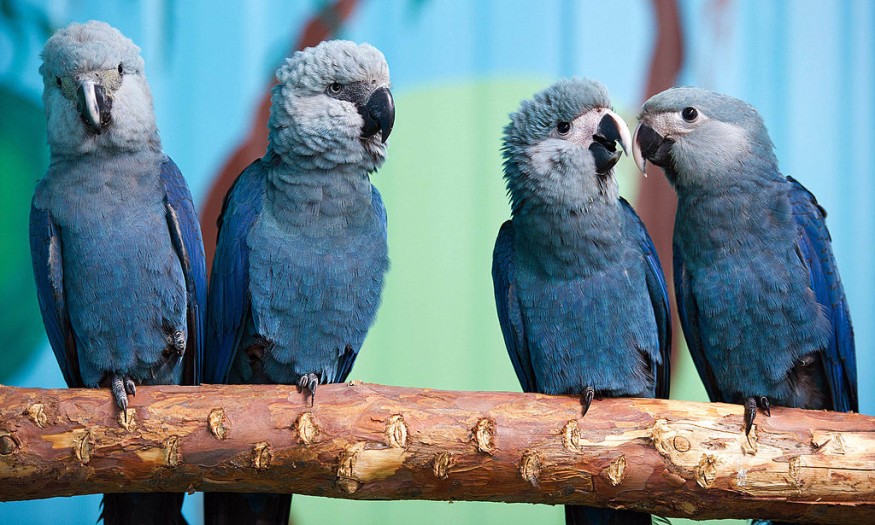The Spix's macaw will return to the wild after 20 years of being absent from its natural habitat. The reintroduction project was made possible through wildlife protection services and non-profit organizations' efforts to nurture and preserve the near-extinct avians.
Reintroduction of Remaining Spix's Macaw to Natural Habitats After Two Decades of Protection

Before the third quarter of 2022, the famous bluebirds will be reinstated to a safe reserve. The selected habitat for the reintroduction of the animals was the vast ecosystem in northeastern Brazil's Caatinga shrublands and forests.
Before their release, the Spix's macaws were taken care of by rehabilitation programs as well as through safe breeding processes to improve their remaining members and increase the population in the future.
Spix's macaw is one of the rarest avians on the planet. The bird is categorized as a small parrot with a rare, blue pigment on its feathers.
Because of human-induced activities such as hunting, removal of their habitats, and illegal trading, the birds were pushed to a near-extinction. Since the dawn of the 21st century, sightings of the Spix's macaw became rare, and eventually, not an individual appeared in the now-devastated forests they once thrived in.
Today, the course of the blue avian's future might shift to a better scenario thanks to the efforts of the Association for the Conservation of Threatened Parrots (ACTP). This Germany-based non-profit team had been dedicating their time and expense to the conservation and protection of various parrots across countries.
Future of Blue Parrots
The organization collaborated with the government of Brazil and the Pairi Daiza Foundation to help the remaining Spix's macaw to be reintroduced to the wild.
Since the unsettling disappearance of the birds, the conservation groups have worked non-stop to give the species a better life and increase their numbers. As of this year, the population of the Spix's macaw surged to 180 healthy individuals, all through the organizations' projects alone.
Belgium's Pairi Daiza zoo houses eight individuals that are living peacefully in a specialized aviary restricted from the public, Euronews reports.
Paira Daiza zoo veterinary and zoology specialist Tim Bouts explained that the first batch in their care would be released to the wild this June after 22 years of being absent in their natural homes.
Scientists say that the return of the Spix's macaw this month would take a little weight off our shoulders, but another concern would come due to the worry about their survival. "An element of guilt" transpires during the project because humans indeed owe these birds we removed from their respective homes.
Experts say that approximately one-third to two-thirds of the population will be lost in the first year after the release. Unfortunately, the blue avians would be taken back in the protection if the rate of loss is ever higher than expected.
RELATED ARTICLE : Cryogenics, the Freezing of Cells, is Helping Save Endangered Species
Check out more news and information on Endangered Animals in Science Times.
© 2026 ScienceTimes.com All rights reserved. Do not reproduce without permission. The window to the world of Science Times.












